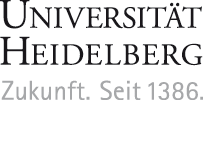Vergil's Undimmed Topicality
Review of the book by Heidelberg classical studies scholar Prof. Michael von Albrecht — Profound analysis of Vergil's three major works — Life in Rome after the strife between Caesar and Pompey — Detailed and intellectually stimulating appreciation
Vergil is certainly one of the most important authors the world has ever seen. The works of the Roman author born in 70 BC offer today's readers an all but inexhaustible fund of profound poetic insights. Though written over 2,000 years ago, the current events they refer to display various, sometimes almost disquieting similarities to present-day developments, as Heidelberg classical studies scholar Michael von Albrecht points out in this closely reasoned introduction to Vergil and his three major poetic works. Then, as now, a passionate longing for peace suffused the world, while the cosmos of the Roman Empire, extending across almost all the known continents of the time, was fully comparable with the globalisation process we are forced to come to terms with today.
Publius Vergilius Maro, born on 15 October 70 BC in Andes near Mantua, came from relatively lowly origins. But with resourcefulness and assiduity his father had carved out a firmly established position for himself in society, enabling him to provide his son with a sound literary education. The modest station from which Vergil sprang, his profound love of nature and the eschewal of nebulous and pretentious diction are all reflected in the stylistic features of his work. All his life the poet remained reticent and retiring, displaying equal disdain for populist rabble-rousing or prominent political offices.
None of this, however, prevented Vergil from recording what went on around him with seismographic acuity. "The first reason for reading Vergil is his highly sensitive response to the pulse of the age, an epoch no less conflict-ridden than ours," writes Heidelberg emeritus von Albrecht. The author also highlights Vergil's ability to write gripping stories well able to enthral even youthful readers or listeners. Vergil's diction is uncomplicated, it uses simple means to achieve great effect. "While others attempt to disguise their inherent shallowness with stylistic bravura, Vergil says unusual things with apparently ordinary vocabulary," writes von Albrecht. "Thus each word is given its full resonance and retains its original freshness."
Equally down-to-earth are the topics Vergil addresses, many of them revolving around the issue of how people can live together in peace despite the harsh conditions imposed by the world around them. Here the poet was also concerned to achieve a new Roman identity, strongly advocating a greater concern for harmony after the hardships caused by the internecine strife between Caesar and Pompey. The suffering imposed by this conflict echoes on in the Aeneid, where we find the injunction: "Cast your weapons aside, we are of one blood!" — an eloquent plea for reconciliation.
Accordingly, engagement with the Aeneid or with Vergil's Bucolics and Georgics is not only supremely rewarding from the literary viewpoint but also heightens our perception of Roman history, the age in which the poet lived. The present volume is the second edition of Michael von Albrecht's intellectually challenging appreciation. The methodical organisation of the volume greatly facilitates finding one's bearings. Von Albrecht regards each of the three major works he deals with under identical headings: structure, genre and predecessors, literary technique, language and style, literary theory, literary traditions and — of especial relevance for this great European classic — influence on later authors.
This approach not only underlines the central topics addressed in the works, it also makes it easier to relocate certain passages in the book at a later date, a feature of considerable value both for teachers and students. The reader is treated to an in-depth appreciation of the original texts, eclogue by eclogue, book by book. The pastoral poems of the Bucolica and the didactic poetry on agriculture in the Georgica are given just as much attention as the 12 books of the Aeneid and their relations to the Greek poetic tradition and the great works to which they hark back (the Odyssey and the Iliad). The cultural superiority of the Greeks was always a thorn in the flesh of the Romans and in his work Vergil does his best to overcome this superiority. But the historical scope of Vergil's great poem is much broader. Troy "is, as for Odysseus, the starting point of the travels and vicissitudes described here. But Rome, the name of which stands right at the end of the first section … is the future objective to which the whole work is geared," writes von Albrecht in his summary of the subject matter of the last great work he deals with in his study.
Ultimately, the author provides not only a detailed introduction to the central problems engaged with by present-day research on Vergil but also — not least with his extensive bibliography — a stimulus to immerse oneself in the different facets of the works themselves. True, von Albrecht assumes good prior knowledge of the work (ideally in Latin) and the style of the 235-page opus is as scholarly as the subject demands. But this in no way detracts from the fascination of Vergil's poetry, a fascination that the author himself patently succumbed to long ago. Michael von Albrecht contrives to convey this fascination to the interested reader. The 2,000 years between the poet and his present-day audience have little or no effect on the outcome.
Michael von Albrecht: Vergil: Bucolica — Georgica — Aeneis. Eine
Einführung. Universitätsverlag Winter Heidelberg 2007, Reihe:
Heidelberger Studienhefte zur Altertumswissenschaft, 2. unveränderte
Auflage, 235 pp., ISBN-10: 3-8235-5265-X, ISBN-13: 978-8235-5265-3, € 19
Please address any inquiries to:
Dr. Michael Schwarz
Press Officer of the University of Heidelberg
phone: 06221/542310, fax: 54317
michael.schwarz@rektorat.uni-heidelberg.de
http://www.uni-heidelberg.de/presse/index.html
Irene Thewalt
phone: 06221/542310, fax: 542317
presse@rektorat.uni-heidelberg.de


